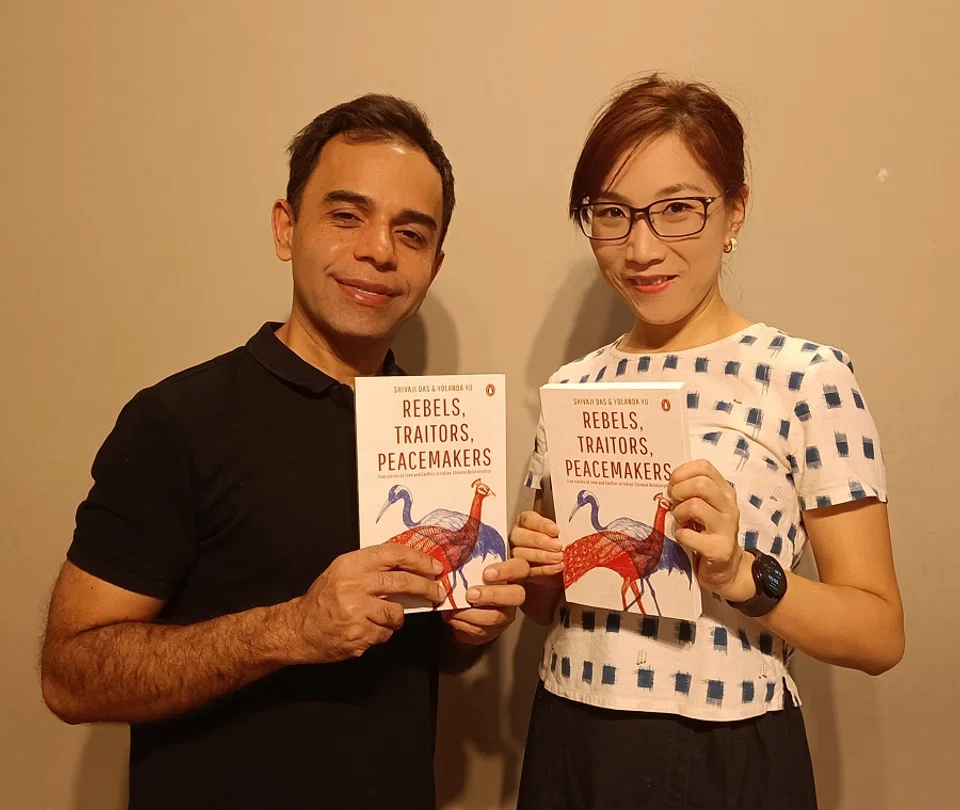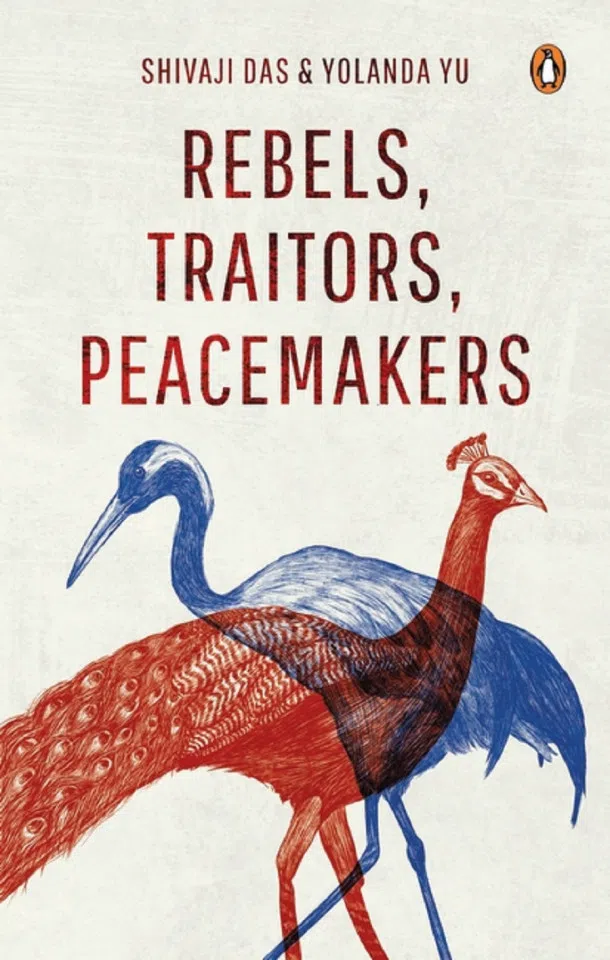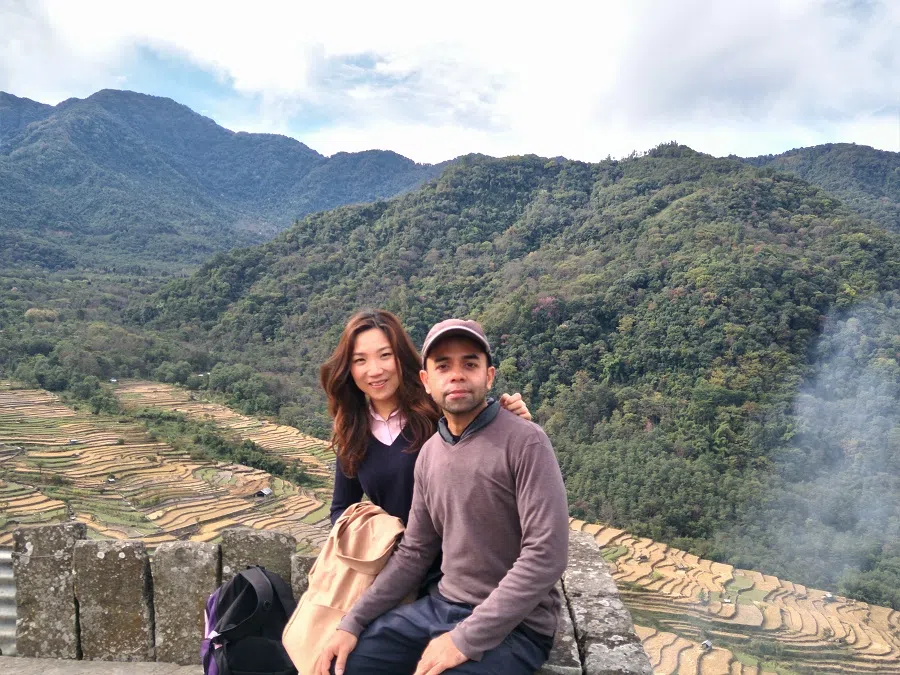The tragi-comic lives of Indian-Chinese couples
Shivaji Das and Yolanda Yu, an interracial couple and the authors of Rebels, Traitors, Peacemakers: True Stories of Love and Conflict in Indian-Chinese Relationships, share their thoughts and findings of their time collecting stories on the lives of Indian-Chinese couples.

In our 12 years together as a Chinese-Indian couple in Singapore, we have often received both curious and annoyed glances. "Why couldn't you find someone of our own type?" we have been asked a few times, accompanied with a hint of annoyance. Other such couples were less fortunate than us. In 2022, a man in Singapore allegedly spat towards an Indian-Chinese couple and said, " . . . you shouldn't be with a Chinese girl . . . that should be my girl."
Once the relationship is formally sealed, the cultural differences cede ground - while never entirely leaving the scene - to individual personality traits causing the couples to have highs and lows like any other.
Nearly one in five marriages in Singapore are interracial. In the US, 17% of all marriages in 2015 were between people of different races or ethnicities, up from just 3% in 1967. However, despite the growing prevalence of interracial marriage, interracial couples often experience discrimination or mistreatment because of their relationship.
For Chinese-Indian couples like us, these challenges are further compounded by historical and political factors - in recent years more amplified through state propaganda - that have created cultural biases and stereotypes resulting in mutual name-calling of one another as uncultured, unhygienic, backward, untrustworthy, contagious, and dangerous.
Both being patriarchal societies where family bonds are strong, the fiercest opposition often comes from our most loved ones: parents and siblings. They call us "traitors" who defy cultural norms and expectations. Some even label us as "spies".
Openness and resoluteness in interracial relationships
Yet in the midst of these complications, the stories of many Indian-Chinese couples are about finding love and forging new relationships that transcend cultural and geopolitical boundaries. To document such lives, we wrote the book: Rebels, Traitors, Peacemakers: True Stories of Love and Conflict in Indian-Chinese Relationships, published this month.
In the book, we document the lives of 32 individuals - including us - involved in such relationships. Set across Singapore, Malaysia, China, Canada, Australia, India, the UK, Nepal and the US, the featured individuals were chosen with a view to provide a balanced mix across socioeconomic status, hetero and non-hetero relationships, in-relationship or separated, etc.
While in no way does our book promise to be a statistically significant survey of such relationships, we did see some commonalities emerging among the diversity of the presented stories.

For instance, the couples exhibit personality traits - openness, curiosity, rationality, rebelliousness, and resoluteness - that perhaps drive them to be in interracial relationships. And invariably, it is the women who suffer the most. Josephine, a girl of Chinese origin, is even locked up and beaten by her family members.
Insults, big and small, are all too frequent. Outsiders, however, have limited influence; their reactions are limited to the occasional stare, a passing comment, or some online trolling.
Once the relationship is formally sealed, the cultural differences cede ground - while never entirely leaving the scene - to individual personality traits causing the couples to have highs and lows like any other.
How much of the differences emanate from cultural backgrounds and how much from individual personality characteristics?
When the lives of people from two great civilisations collide
Certain unique practical challenges such as communication issues and matching up to societal expectations do linger on - how does one even operate a simple washing machine when all I see on it are unfamiliar Chinese characters?
While interracial couples, in general, have been documented to have a higher rate of separation or divorce than those who marry within their race , Indian-Chinese couples seem to stick together - perhaps an outcome of traits (fidelity and loyalty) often cited by one to praise the other. While those who have stayed together harbour no regrets, if separation does happen, strong biases against the other race can creep in fast.
The stories we collected often tread on the edge of the tragic and the comic: linguistic faux pas, shock at alien food habits, cultural misunderstandings and bigoted reactions from strangers. Finer details of the cultural practices of the two population groups reveal striking similarities - filial piety, obsessive ambition, and a permanent sense of inferiority on the world stage.
Because of the unique choices they have made, the featured characters clearly demonstrate the human qualities of adaptability, rebelliousness, and resoluteness. Yet, by also showcasing their frustrations, guilt, and doubts, our book unearths the collateral damages experienced when the lives of people from two great civilisations collide. Amit, a man of Indian origin, feels estranged from all social activities organised by his community. Demi and Kumar lament the constant communication challenges.
Can culture become a convenient excuse?
But these stories also made us question our preconceived notions. How much of the differences emanate from cultural backgrounds and how much from individual personality characteristics? Can alternate identities such as religion wipe out Indian-ness or Chinese-ness completely? Do certain life experiences predestine people for intercultural relationships? How strong is the power of domesticated life in removing all traces of cultural differences? Can culture become a convenient excuse for transgressions?
Nothing validates this more than the typical conversion of their parents and siblings, from being the fiercest opponents to becoming the most ardent advocates.

If love and conflict are two sides of the same coin, nowhere is this more evident than in Indian-Chinese relationships. While their stories prove the importance of empathy, understanding, and acceptance in bridging differences, they also remind us of the temptation of falling for stereotypes.
And despite concerns about the potential bullying their children may face, most couples feel positive about the future of their mixed progeny, citing their possible advantages in navigating two societies that are increasingly becoming both powerful and prosperous.
Overall, the couples view their relationship as a positive message to the world - an expression of a desire for mutual understanding and shared humanity. Eventually, such relationships display the power of love to transform our lives and communities. Nothing validates this more than the typical conversion of their parents and siblings, from being the fiercest opponents to becoming the most ardent advocates.
Our goal in writing this book will be achieved if such stories inspire readers to challenge cultural stereotypes and biases and embrace the diversity and richness of our world while firmly endorsing the reaffirming qualities of human life.






